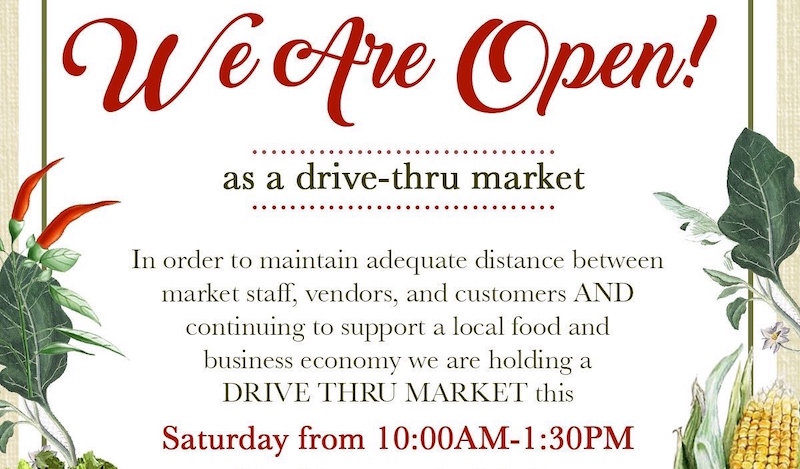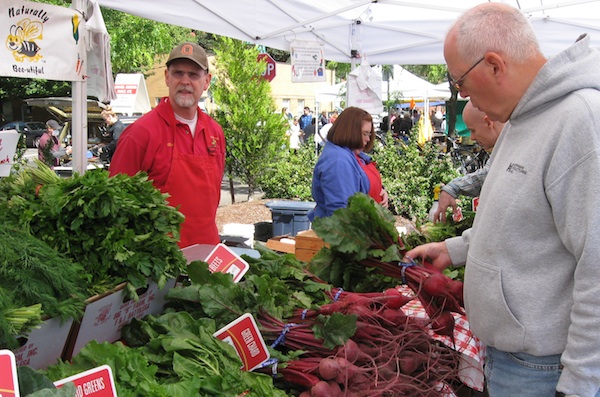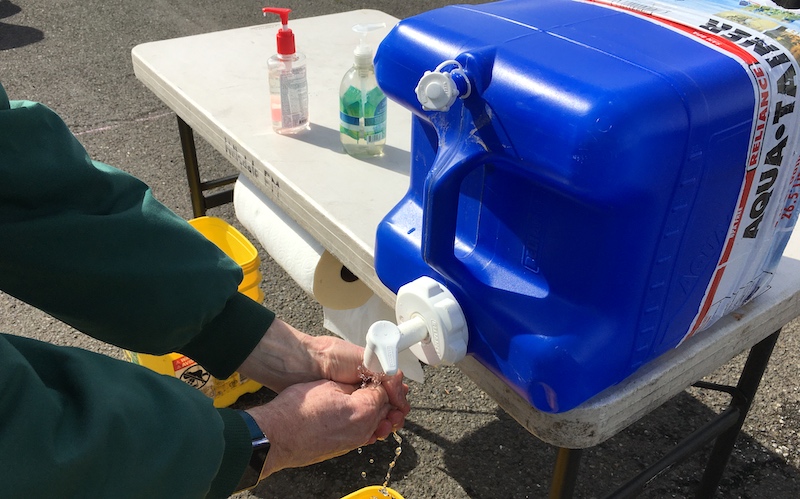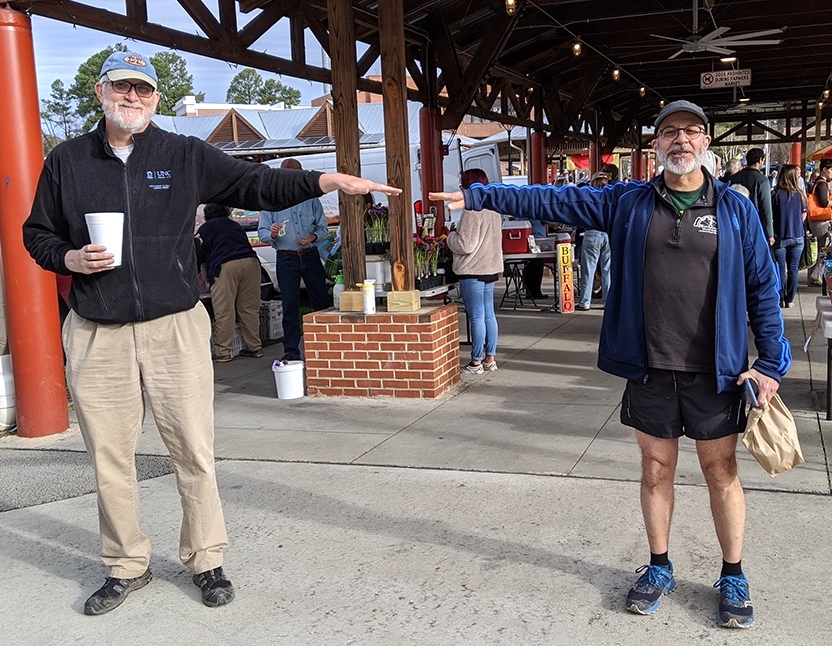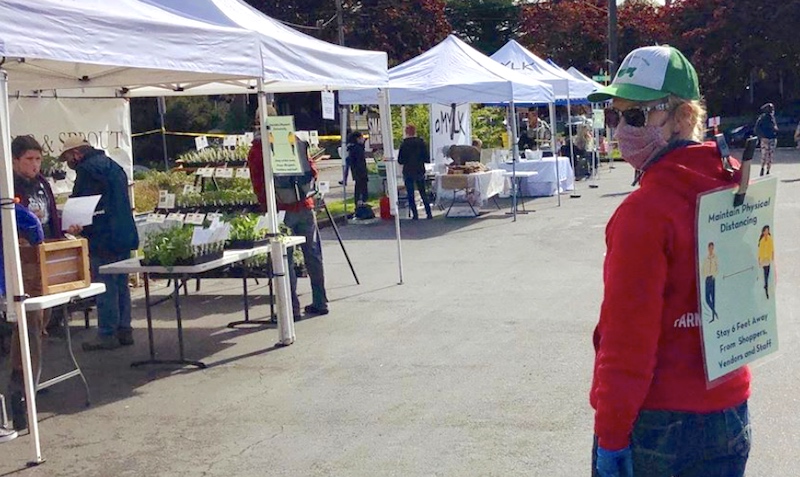
Oregon Farmers' Markets are Open and Adapting as Pandemic Progresses
"Milwaukie had its second market of the season on Sunday," wrote Milwaukie Farmers' Market market manager Brendan Eiswerth about the normally packed Mother's Day market. "I was having nightmares about there being too many customers, the opposite of the nightmares I had for the past 21 years about no one showing up."
That was the signal worry on most farmers' market managers' minds in this era of COVID-19: how to keep shoppers and vendors safe while supporting small family farmers and producers.
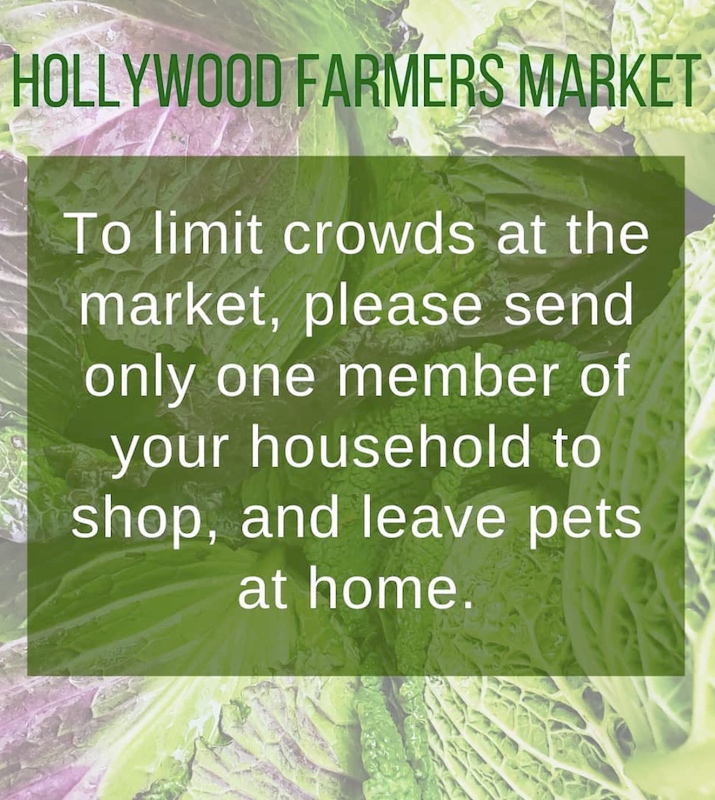
Most markets in Oregon have made adaptations to follow statewide guidelines from Governor Kate Brown's Executive Order that designated farmers' markets as essential services. The Oregon Farmers' Market Association developed its own resource list to guide farmers' markets in adjusting their operations to minimize risk to the public of transmission of COVID-19.
A previous post outlined how local markets were innovating to provide food and support local farms during the pandemic, including experimenting with setting up systems for pre-ordering from vendors online and then picking up on market day. Others tried switching to a drive-through model where shoppers could pull up to a vendor's stall, choose items and then have the vendor place them in the shopper's car.
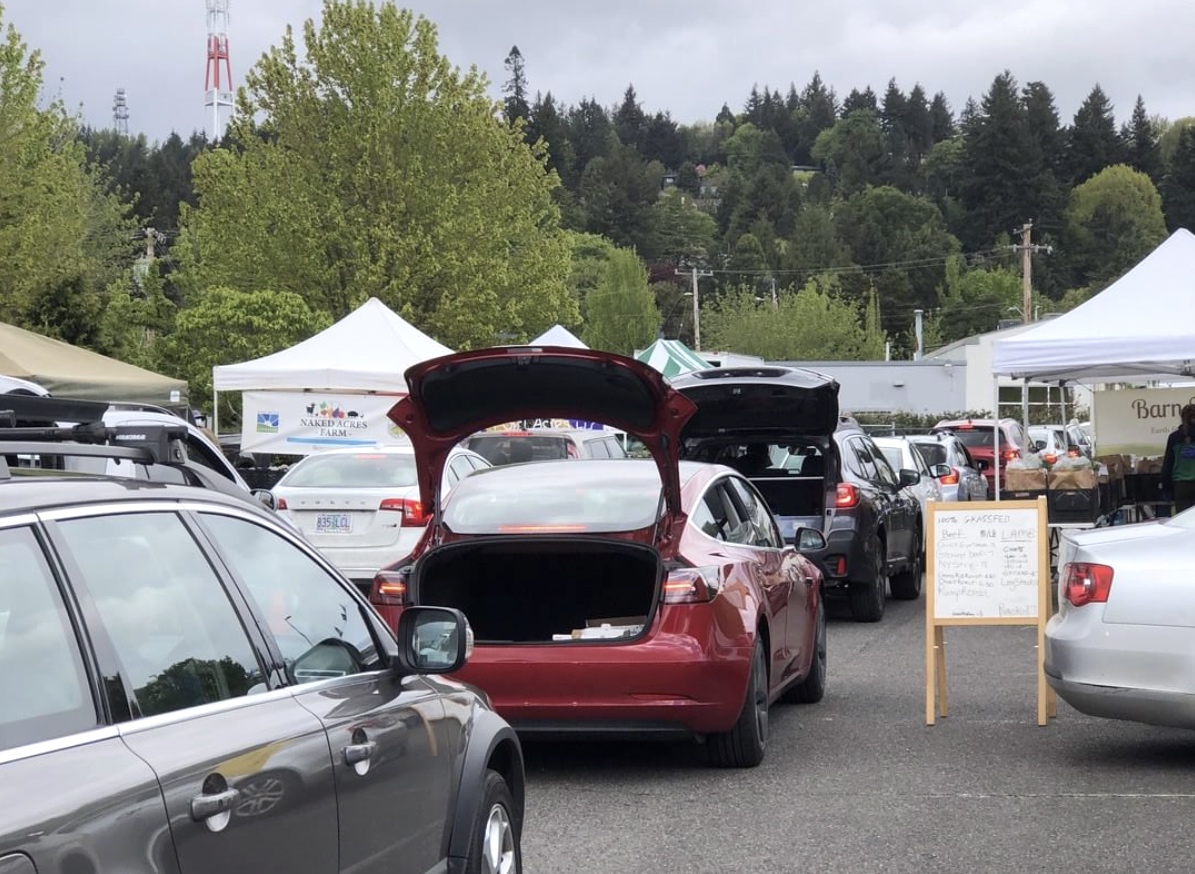
Ginger Rapport, manager of the Beaverton Farmers Market, said that the drive-through model, implemented during the smaller winter market, got them through the early months of the pandemic, though she knew it wasn't sustainable in the busier spring and summer months.
"At the beginning of the pandemic when people were not sure how to deal with the whole situation, the drive thru provided some customers a measure of comfort that allowed them to continue shopping with us," she said.
Markets were also observing distancing requirements, placing booths from six to 10 feet apart, with one person at each stall assigned to reinforce social distancing. Other measures included encouraging shoppers to come alone, if possible, and to make a shopping list in advance of their trip in order to limit the time spent at the market. Most had already canceled classes, activities and music performances, and were asking people to refrain from extended interactions with other shoppers to shorten the time spent at the market.
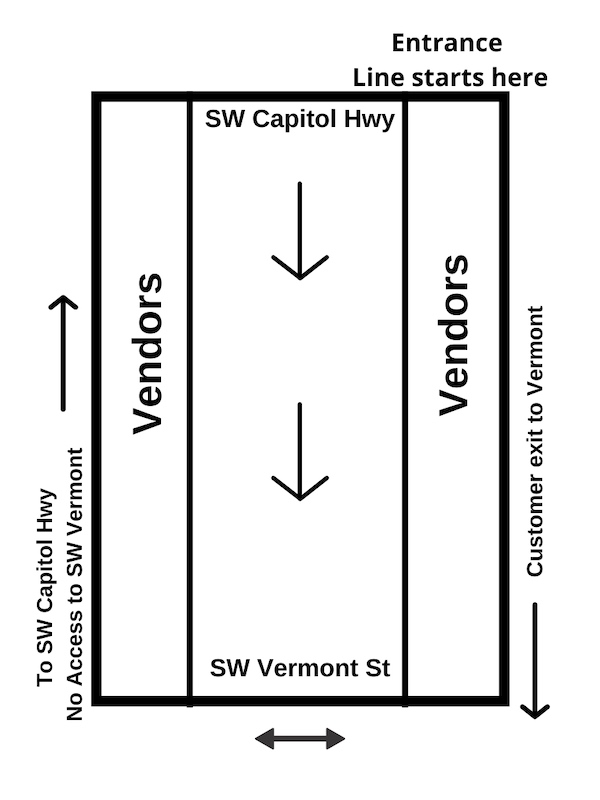
Hillsdale Farmers' Market initially piloted online pre-ordering with drive-through pick-up where shoppers simply had to pull up to the vendor's booth and their purchases could be loaded into the car. Initially there was some resistance. "I definitely received complaints from vendors and customers," said manager Eamon Molloy. "But it worked pretty well. We had well over 300 households move through the market between 10 a.m. and 12:30 p.m. on May 3rd."
But by mid-May a construction project next to the market site and the increasing number of shoppers necessitated pivoting to another model. Molloy tried curbside pick-up, but site constraints made it too hard to implement. "It is unfortunate, too, because we still had over 150 households who wanted to just pick up and keep safe distance by being in their cars," he said.
Molloy is now sketching out plans for a restricted-access pedestrian market (above left), only allowing 65 shoppers at a time into the market site with a suggested time limit per trip of 20 minutes. For the safety of shoppers and vendors, masks will be required for everyone onsite, with handwashing at designated stations strongly suggested before entering and after leaving the market.
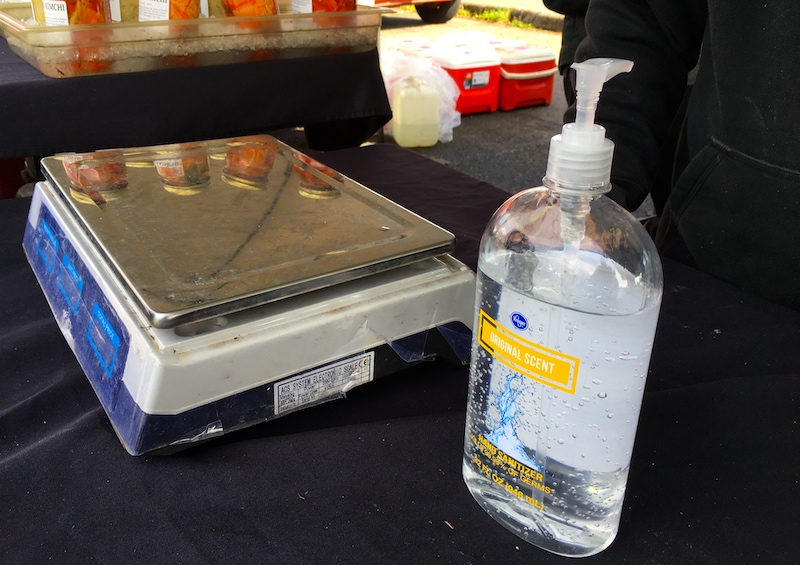
The Hollywood Farmers Market, a neighborhood institution since 1997, operates year-round and has had an open, accessible site with six main points of entry, an unmanageable situation when it comes to limiting access.
"Our market-day crowds had generally been well below capacity," wrote market coordinator Ari Rosner. "But we knew that the nice weather, strawberry availability and the Mother's Day holiday would mean bigger crowds."
Liberal use of caution tape stretched around the perimeter reduced those six entrances to just two, which were staffed with volunteers tasked with monitoring the number of shoppers in the market at any one time and keeping those waiting properly distanced. "At the peak of the market, we had probably 60 shoppers waiting in line between the two entrances," said Rosner. "But talking to shoppers at the front of the line, it seemed like no one had to wait more than about 10 minutes to get into the market."

Asked how the pandemic has affected her market, which was established in 1988 as a gathering place for the community, Rapport said that COVID-19 has upended the way that she runs the market. "I have managed this market for 25 years and in each and every year before this, my focus was on maximizing the real estate available to me," she said. "Social distancing has redefined how we operate. It [has been] stressful to reinvent the wheel every week but, like everyone else, we are in survival mode.
Having to give up the social component of the market experience breaks her heart, Rapport said, but providing vendors and customers with a safe shopping experience while keeping the market going for its small businesses and farms has to be the priority now.
Like most of the market managers I spoke with, Rapport said she tries to keep her eyes on the prize as she navigates the obstacles presented by the pandemic. In her words: "To give our customers the opportunity to shop for farm fresh products and artisan foods with the promise that we will be here for them when they are once again able to join their family and friends for a long, leisurely day enjoying the market and one another’s company."
The Beaverton Farmers Market is a sponsor of Good Stuff NW.
